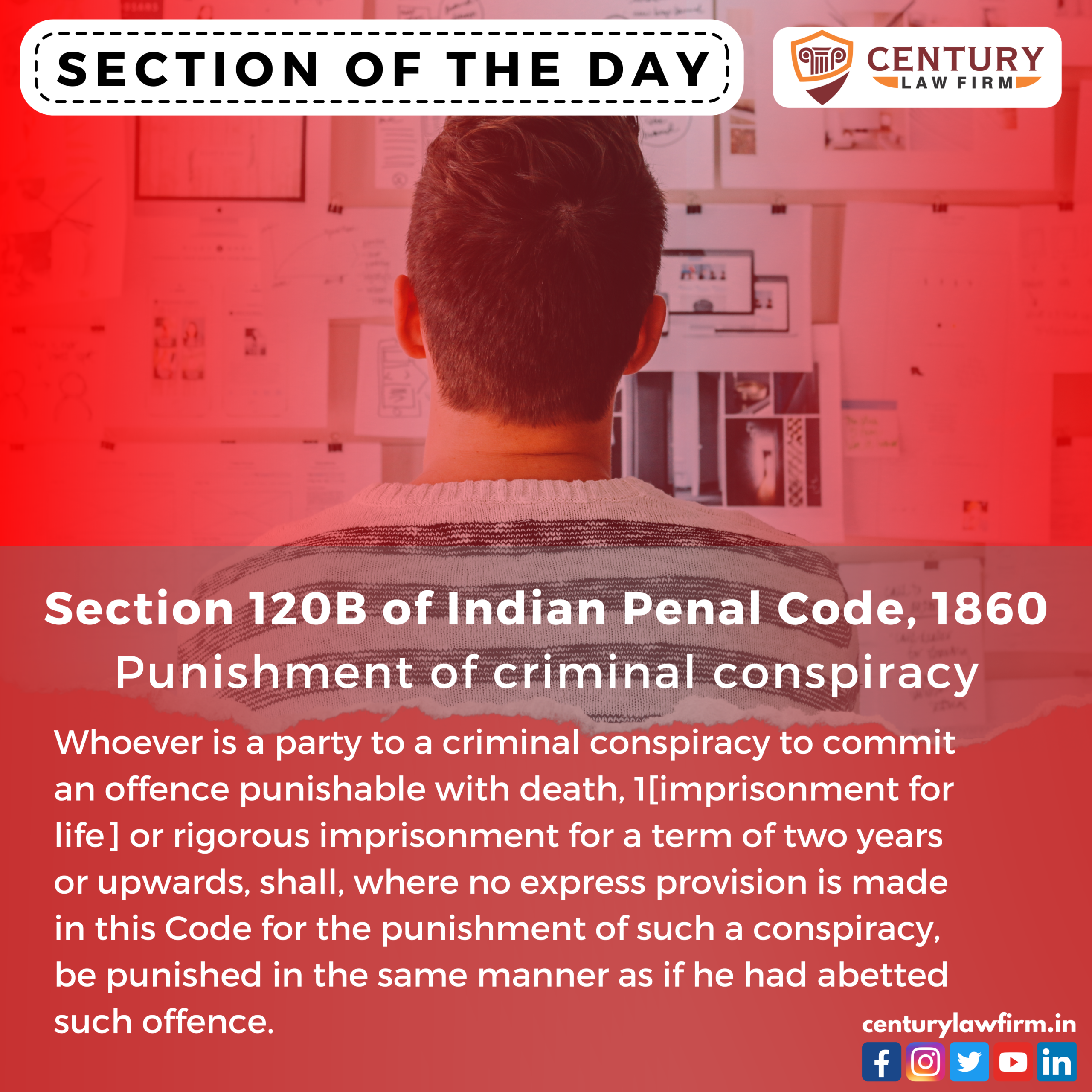Introduction to Section 120B of the Indian Penal Code, 1860
Section 120B of The Indian Penal Code, 1860 : Punishment of criminal conspiracy.—
(1) Whoever is a party to a criminal conspiracy to commit an offence punishable with death, 2[imprisonment for life] or rigorous imprisonment for a term of two years or upwards, shall, where no express provision is made in this Code for the punishment of such a conspiracy, be punished in the same manner as if he had abetted such offence.
(2) Whoever is a party to a criminal conspiracy other than a criminal conspiracy to commit an offence punishable as aforesaid shall be punished with imprisonment of either description for a term not exceeding six months, or with fine or with both.
Understanding the Legal Framework of Section 120B IPC
Whoever is a party to a criminal conspiracy to commit an offence punishable with death, 1[imprisonment for life] or rigorous imprisonment for a term of two years or upwards, shall, where no express provision is made in this Code for the punishment of such a conspiracy, be punished in the same manner as if he had abetted such offence.
Section 120B of the Indian Penal Code (IPC) deals with criminal conspiracy. It states that “whoever is a party to a criminal conspiracy to commit an offence punishable with death, imprisonment for life or rigorous imprisonment for a term of two years or upwards, shall, where no express provision is made in this Code for the punishment of such a conspiracy, be punished in the same manner as if he had abetted such offence.”
In simpler terms, Section 120B of the IPC makes it a punishable offence for a person to be a party to a criminal conspiracy to commit an offence that is punishable with death, imprisonment for life, or rigorous imprisonment for a term of two years or more. If there is no express provision in the IPC for the punishment of such a conspiracy, the person shall be punished in the same manner as if he had abetted the offence.
Defining Criminal Conspiracy
The section defines criminal conspiracy as an agreement between two or more persons to do an illegal act or to do a legal act by illegal means. The agreement can be express or implied, and the parties to the conspiracy must have a common intention to commit the illegal act.
It is important to note that Section 120B does not require that the actual offence be committed for the conspiracy to be punishable. The agreement to commit the offence is enough to make the conspiracy a punishable offence.
Punishment Under Section 120B IPC
The punishment for criminal conspiracy under Section 120B can vary depending on the offence that is the subject of the conspiracy. If the offence is punishable with death, the punishment for criminal conspiracy can also be the death penalty. If the offence is punishable with imprisonment for life or rigorous imprisonment for a term of two years or more, the punishment for criminal conspiracy can be imprisonment for a term up to the maximum punishment prescribed for the offence.
Conclusion: The Implications of Section 120B IPC
In conclusion, Section 120B of the Indian Penal Code makes it a punishable offence for a person to be a party to a criminal conspiracy to commit an offence that is punishable with death, imprisonment for life, or rigorous imprisonment for a term of two years or more. The section defines criminal conspiracy as an agreement between two or more persons to do an illegal act or to do a legal act by illegal means. The punishment for criminal conspiracy can vary depending on the offence that is the subject of the conspiracy, and the punishment can be up to the maximum punishment prescribed for the offence.


